Postpublished at 17:25 GMT 20 January 2015
BBC Home Editor Mark Easton tweets, external @timberners_lee and @GuidoFawkes talk to me about digital transparency in government for #BBCDemocracyDay at 6 on @BBCNews
20 January 2015 marks the 750th anniversary of the first parliament of elected representatives at Westminster, the de Montfort Parliament
50 years earlier Magna Carta - or the Great Charter - was sealed by King John in 1215 and established for the first time that everyone, including him, was subject to law
The BBC is broadcasting a day of live events, discussion and debate broadcast from inside Westminster and the BBC Radio Theatre
Highlights include an interview with the inventor of the World Wide Web, Sir Tim Berners Lee; live streaming of BBC News meetings; and panel debates from inside the Radio Theatre
Democracy Day is produced in collaboration with the House of Commons and the House of Lords
Anna Browning, Holly Wallis, Laurence Peter, Alison Daye and Paul Harrison
BBC Home Editor Mark Easton tweets, external @timberners_lee and @GuidoFawkes talk to me about digital transparency in government for #BBCDemocracyDay at 6 on @BBCNews
Well they do say democracy is all about freedom of speech, and looks like #bbcdemocracyday has the conversation flowing. Figures show so far there have been an estimated 10,775 tweets mentioning that hashtag alone - and at its peak there were around 83 tweets every two minutes.
Dissident Wuer Kaixi: The thousands of uprisings in China in the past few years "shows we are not satisfied". Democracy might be "dangerous" for a short time, he says, "but how much more chaotic can it be compared with Communist China"? Currently China is not stable, he says.
What does dissident Wuer Kaixi think of the recent Hong Kong democracy protests? Disappointed, he says, but more disappointed with the UK Foreign Office, for its "appeasement" of Beijing. He says the former colonial power should have taken responsibility for the Hong Kong people.
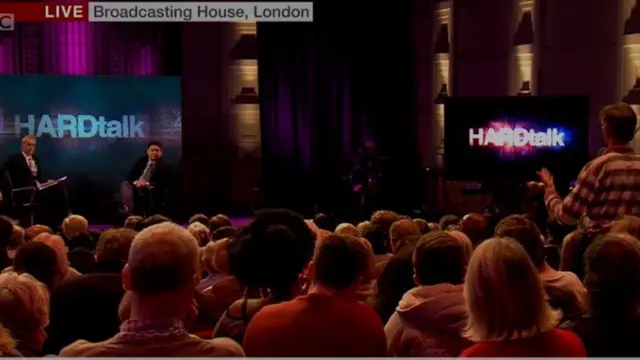
Stay tuned to the PM programme, live on BBC's Radio 4, to hear a discussion on democracy and the media.
Wuer Kaixi says he's willing to go back to China even if it means prison. He says he is determined to continue the campaign for democracy. He is asked: Can there be democracy in China in your lifetime? His reply: Absolutely, remember Gandhi.
Helen Deller, BBC World News Publicist
tweets, external: Chinese govt not against corruption they are corruption despite the drive says Wu'er Kaixi on @BBCHARDtalk #BBCDemocracyDay
Chinese dissident Wuer Kaixi rejects the argument that the Chinese Communists are delivering stability, conquering poverty. He says similar arguments were used in the 1920s and 1930s by those who appeased Hitler's Nazi Germany and Italy's Fascist dictator Mussolini. The Communists cannot get rid of corruption, he adds.
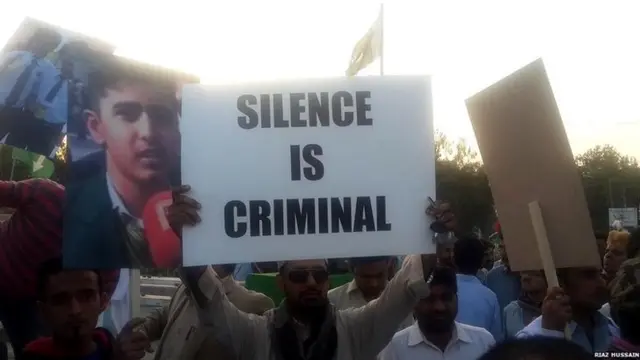 Image source, Riaz hussain
Image source, Riaz hussainOther pieces looking at democracy we've seen today include:
BBC home affairs editor Mark Easton speaking to web inventor Sir Tim Berners-Lee about whether the UK is really the "most transparent" nation in the world
BBC Democracy Live's democracy through the ages
And we examined the nature and scale of protests happening around the world every day - in pictures
Here are a few things we've learned about today:
The power of words at Westminster - in this piece by the BBC's Andy Walker
New research is pointing to a "crisis of democracy" in Europe
And how and why has Palestinian democracy failed to flourish
Stephen Sackur interviews Chinese dissident Wu'er Kaixi. Watch the live stream now and tweet your questions to @BBCHardtalk, external using the hashtag #BBCDemocracyDay
Remember this moment in 1989? This is when the tanks rolled in to Tiananmen Square to crush the pro-democracy protest.
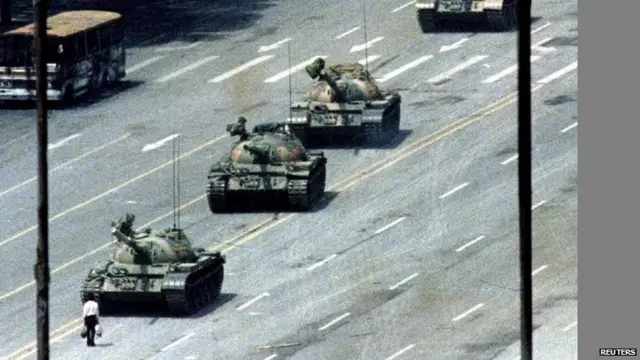 Image source, Reuters
Image source, Reuters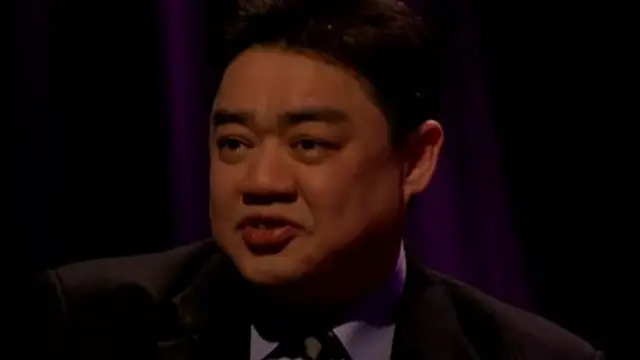
Chinese dissident Wuer Kaixi says the Communist Party had no idea how to handle the democracy movement. The images of mass protest were being broadcast to the world.
"When [ex-Premier] Li Peng met us the decision had already been taken [to crack down on the pro-democracy students]."
He continues: The Chinese military crackdown in Tiananmen Square in 1989 meant "we paid a great price, I haven't been able to see my parents, family for the last 25 years - but it doesn't compare with those who lost their lives".
"We didn't want our lives to be designed by somebody else. Deng Xiaoping just opened the window a little, not the door."
Chinese dissident Wuer Kaixi on HARDTalk: "I don't think I've done anything wrong... would I do it again? My answer would be very hesitant, because the outcome was nothing we could have anticipated."
Charlotte Sexton, UK, emails: We live in a democracy, but how democratic is the UK when only part of the country's population are engaging with the process of electing its government? A disproportionate amount of people who weren't represented are young people and those from low income backgrounds. Politicians need to demonstrate a real commitment to democracy by reaching out to less engaged groups.
They've got there. Our colleagues on Democracy Live have catalogued the march of democracy in the UK from 1215 until the present day, all day. And they've reached the end - or is it?. Scottish 16 and 17-year-olds were given the vote in 2014. So what does 2015 hold? General Election perhaps?
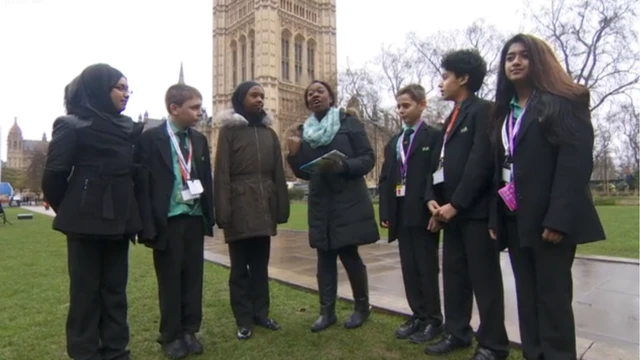
The team from Newsround is also reporting on Democracy Day, and discovering how laws are made in the UK.
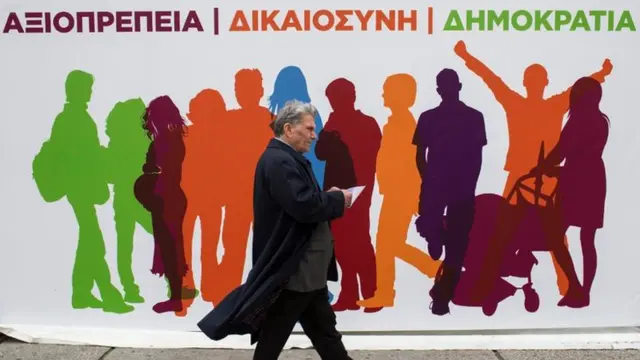 Image source, Reuters
Image source, ReutersWestern democracy is alive and kicking in its birthplace - Greece, where a key election takes place on Sunday. Left-wing Syriza is tipped to win, and aims to renegotiate Greece's huge debts, rejecting austerity. It is likely to shake up EU politics. BBC Today programme presenter John Humphrys reports from Athens.
BBC World Service tweets, external Chinese dissident Wu'er Kaixi on @BBCHARDtalk at 16.32GMT http://bbc.in/15rVVMy #BBCDemocracyDay